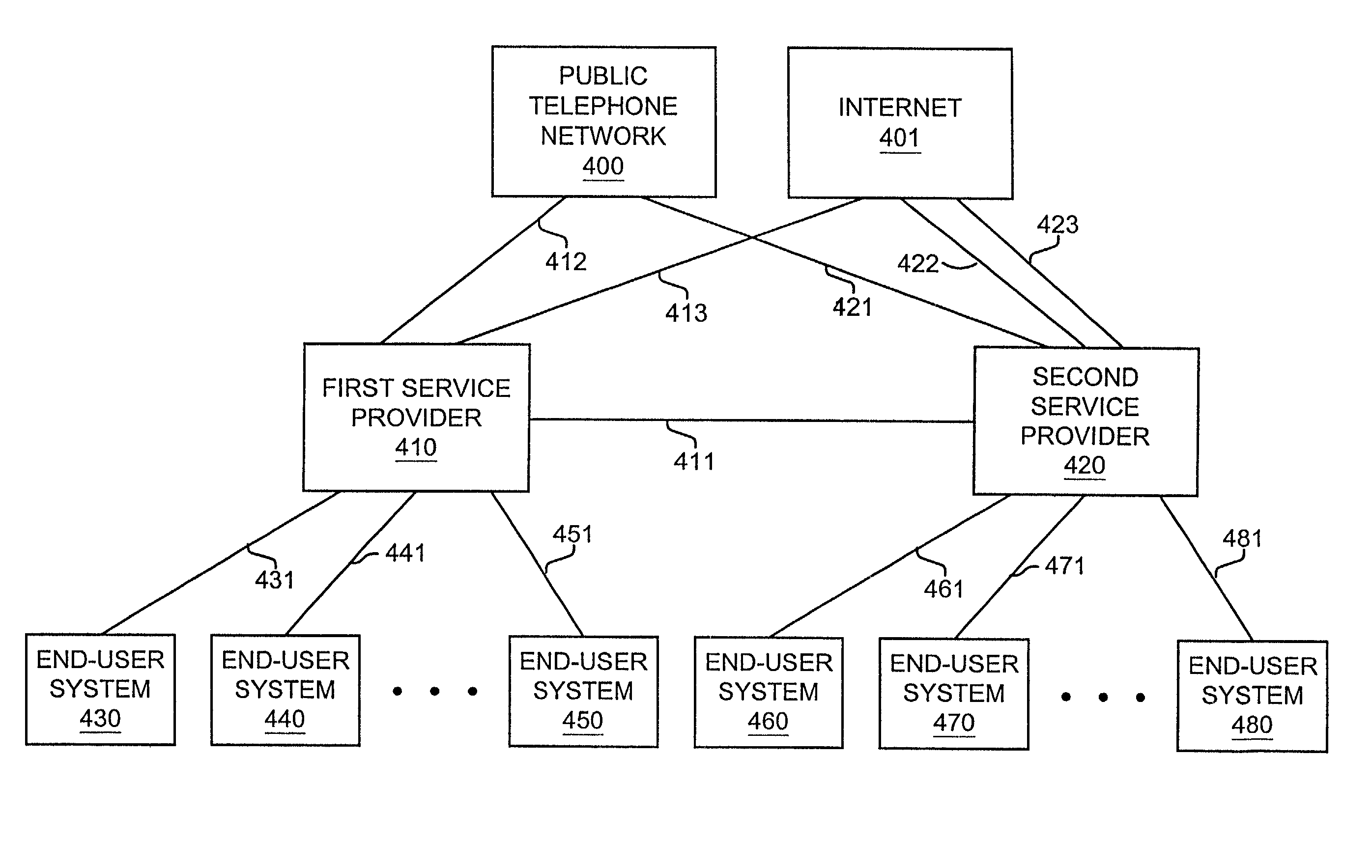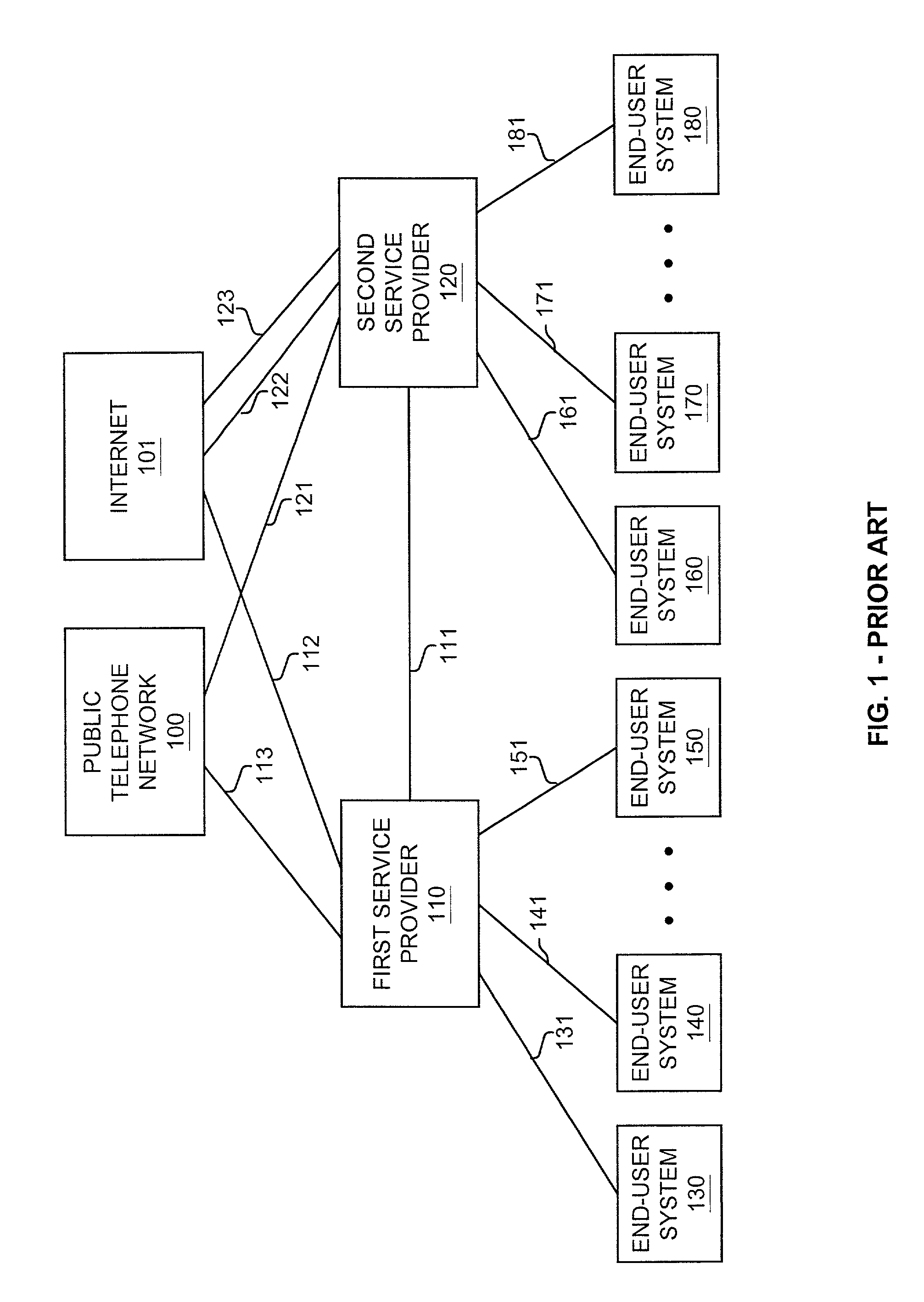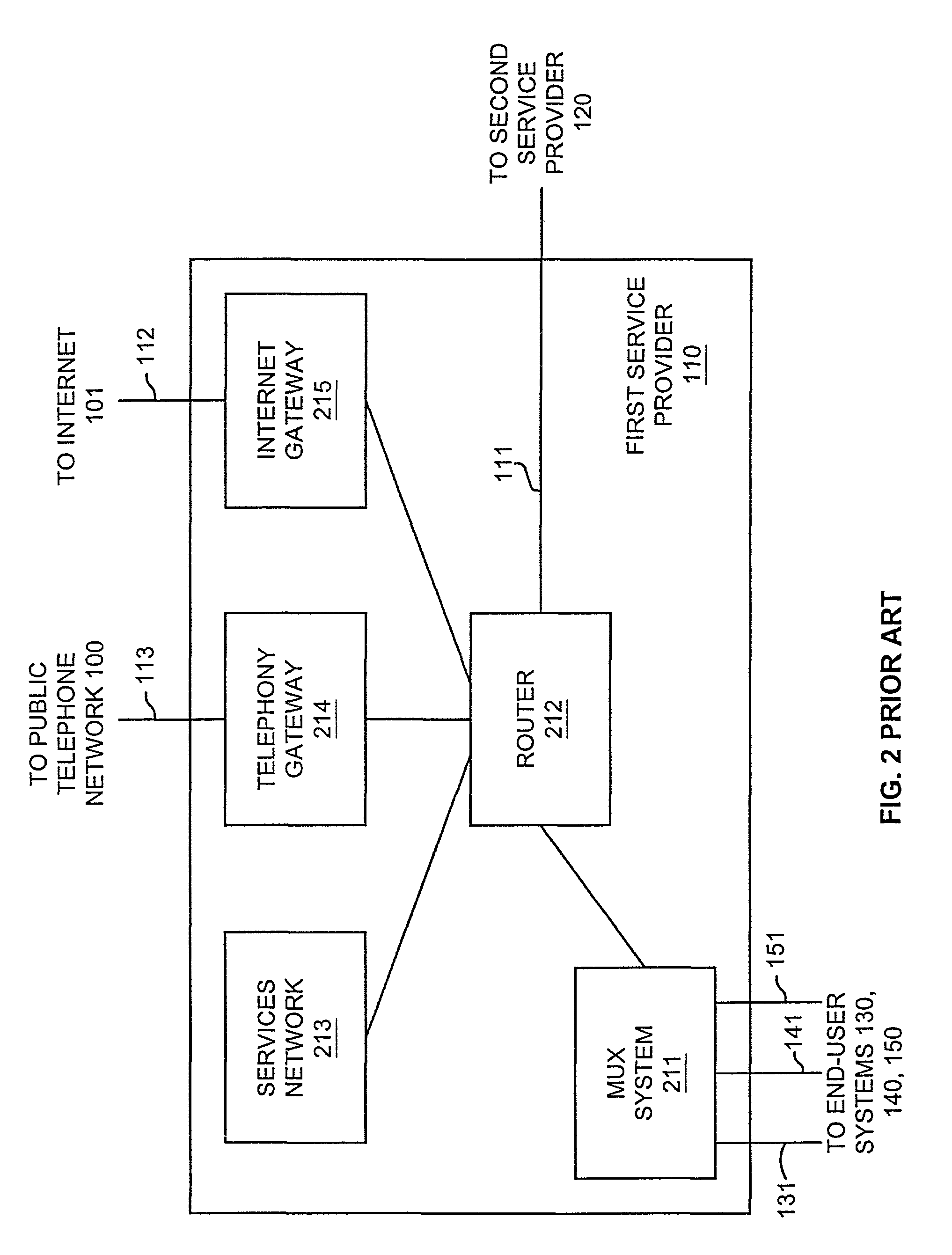Establishing end-user communication services that use peer-to-peer internet protocol connections between service providers
a technology of peer-to-peer internet protocol and end-user communication, applied in the field of communication, can solve the problems of preventing other service providers from deploying their own end-user connections in competition with existing service providers, delivering a meaningful level of competition, and serious problems for end-users, and achieve the effect of stimulating meaningful competition at the service level and expanding the choice of end-users
- Summary
- Abstract
- Description
- Claims
- Application Information
AI Technical Summary
Benefits of technology
Problems solved by technology
Method used
Image
Examples
Embodiment Construction
[0048]FIGS. 4-9 and the following description depict specific examples to teach those skilled in the art how to make and use the best mode of the invention. For the purpose of teaching inventive principles, some conventional aspects have been simplified or omitted. Those skilled in the art will appreciate variations from these examples that fall within the scope of the invention. Those skilled in the art will appreciate that the features described below can be combined in various ways to form multiple variations of the invention. As a result, the invention is not limited to the specific examples described below, but only by the claims and their equivalents.
Communication Service Provider Environment—FIGS. 4-6
[0049]FIG. 4 illustrates a service provider environment in the prior art. End-user systems 430, 440, 450 are coupled to first service provider 410 over respective connections 431, 441, 451. End-user systems 460, 470, 480 are coupled to second service provider 420 over respective ...
PUM
 Login to View More
Login to View More Abstract
Description
Claims
Application Information
 Login to View More
Login to View More - R&D
- Intellectual Property
- Life Sciences
- Materials
- Tech Scout
- Unparalleled Data Quality
- Higher Quality Content
- 60% Fewer Hallucinations
Browse by: Latest US Patents, China's latest patents, Technical Efficacy Thesaurus, Application Domain, Technology Topic, Popular Technical Reports.
© 2025 PatSnap. All rights reserved.Legal|Privacy policy|Modern Slavery Act Transparency Statement|Sitemap|About US| Contact US: help@patsnap.com



